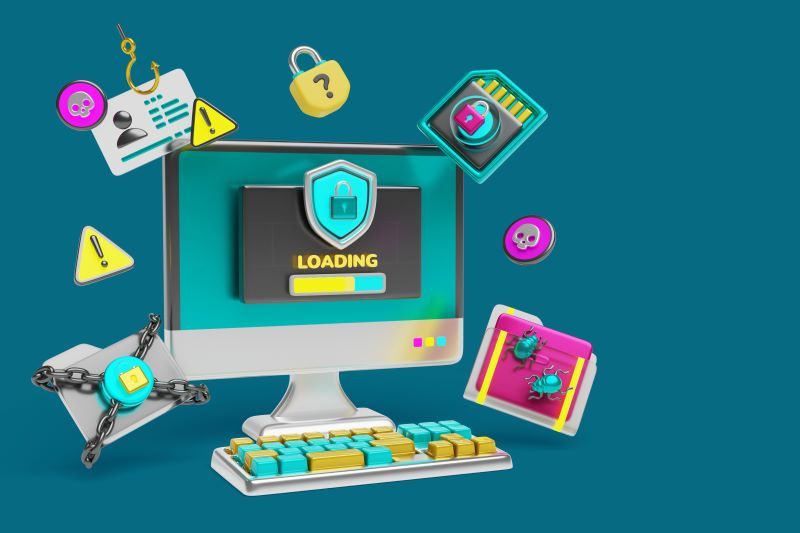If you’ve ever pictured a hacker as someone in a hoodie typing furiously in a dark room, you’re not alone – but the truth is, cybercriminals are less like movie villains and more like manipulative magicians. They rely on illusion, distraction, and a deep understanding of human behavior to get what they want.
So how do cybersecurity professionals stop them?
They learn to think like a hacker – not to become one, but to stay one step ahead. Here are five real-world tactics cybersecurity experts use to outsmart today’s digital troublemakers… and how you can learn to do the same.
They Know the Easiest Way In is Through You

Hackers love shortcuts. Why bother cracking a complex firewall when you can just trick someone into handing over their password?
That’s called social engineering, and it’s one of the most common attack methods. Whether it’s a phishing email pretending to be your bank or a fake IT tech calling you for “urgent support,” it works because people are helpful by nature.
Cyber pros counter this by mastering psychology as much as technology. They train users, implement email filters, and create systems that limit how much damage one click can do.
Want to be the one designing that kind of digital safety net? That’s what cybersecurity courses online prepare you for.
They Set Digital Traps – and Then Watch the Watchers

A clever cybersecurity expert doesn’t just build walls. They leave honeypots – fake systems that look vulnerable, but are designed to attract hacker attacks and monitor their behavior.
It’s like setting out a decoy safe with nothing in it but glitter and a note that says “Nice try.”
These digital traps help identify patterns, test defenses, and gather real-time data on how attackers think. It’s not just protection – it’s proactive intel gathering.
Learning to outsmart cybercriminals starts with knowing how to bait hackers and track them – a concept you’ll explore early on in the best cyber security courses online.
They Assume It’s Already Broken

One of the golden rules in cybersecurity? Assume the system is already compromised – then act accordingly. This doesn’t mean professionals are paranoid (well, maybe a little). It means they approach systems with zero trust: no one gets access without constant verification, even if they’re inside the network.
The result? Even if a hacker gets in, they’re stuck in a maze of locked doors.
This mindset is what separates amateurs from professionals – and it’s something you can only develop by immersing yourself in hands-on scenarios, like the kind offered through ABM College’s online Cybersecurity Diploma.
They Think Three Moves Ahead

Cybercriminals evolve fast. So cybersecurity experts have to think like chess players – anticipating the next hacker attack, not just responding to the last one.
That might mean conducting penetration testing (simulated attacks on their own system), analyzing new threats across the globe, or adapting security protocols as new technologies roll out.
It’s part prediction, part pattern recognition, and part staying curious – because the digital world doesn’t stand still. With a solid cybersecurity education, you don’t just learn tools – you learn how to think like a strategist.
They Get Comfortable with Being Uncomfortable

Finally, the best cybersecurity professionals know one thing for sure: there’s no such thing as 100% secure. That might sound discouraging, but it’s actually freeing. It forces pros to stay adaptable, humble, and constantly learning.
In this world, yesterday’s solutions won’t stop tomorrow’s threats. But that’s what makes it exciting. Whether you’re analyzing malware, researching threat vectors, or building defenses from scratch, cybersecurity is a field for problem-solvers who thrive on the unknown.
Ready to Flip the Script?
If you’re intrigued by the idea of thinking like a hacker to stop one, you’re not alone – it’s a skill set that’s in high demand across every industry, from banking to healthcare to gaming.
At ABM College, our Cybersecurity Diploma is fully online, so you can learn at your own pace, from anywhere, while building the skills you need to protect data, prevent breaches, and start a rewarding career in IT security.
So whether you’re a natural puzzle-solver, a tech enthusiast, or just someone who really hates scam emails – there’s a place for you in cybersecurity. According to the Canadian Job Bank, prospects across Canada for the next few years will be consistently good.
Contact us to learn more.
Read more trending blogs.
About The Author

Content Editor & Writer, ABM College
As Content Editor at ABM College in Calgary, Alberta, Stephen plays a key role in advancing the college’s mission to provide relevant, high-quality training for today’s job market. He ensures all blog articles and web materials are accurate, clear, and genuinely useful for students, career changers, and industry professionals.
Stephen is also the author of a best-selling historical reference series documenting decades of computer and video gaming history — a body of work recognized by the Canadian Choice Awards.
Connect with Stephen on LinkedIn, explore his published works at Falcon Designs, or see his editorial expertise in action on the ABM College Blog.
